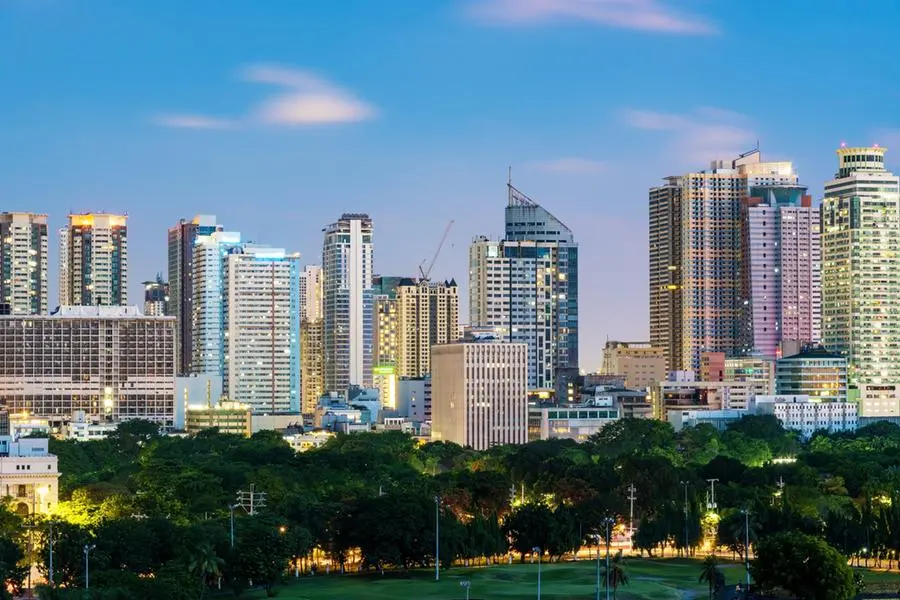PHOTO
Economists are expecting a smaller rate hike by the Bangko Sentral ng Pilipinas (BSP) this month as inflation stayed below nine percent after easing to 8.6 percent in February from 8.7 percent in January.
Aris Dacanay, ASEAN economist at HSBC, said the easing of the consumer price index (CPI) in February is welcome news given how inflation in the Philippines is the highest in the region today.
'Since inflation came in below nine percent, the case of a 25-basis-point hike, which is our baseline forecast, increases. In addition, we think the BSP not hiking is highly unlikely given how broad inflation spilled over to other commodity baskets,' Dacanay said.
BSP Governor Felipe Medalla earlier said a headline inflation of above nine percent in February would provide more impetus for the BSP to deliver another 50-basis-point hike on March 23.
Dacanay noted that demand was still strong amid the uptick in the prices of goods and services unrelated to food and energy, such as clothing and footwear, personal care and recreation.
Dacanay said it was difficult to conclude whether inflation in the country already peaked at 8.7 percent in January.
'Indeed, the momentum of inflation eased significantly in February, but it's difficult to determine the peak with confidence given the extent to which inflation was spreading to other goods and services,' Dacanay said.
ING Bank senior economist Nicholas Mapa said that inflation hopefully and likely already peaked, giving the BSP more room to deliver a smaller rate hike this month.
The Dutch financial giant sees inflation further easing to eight percent this month.
Jun Neri, lead economist at Bank of the Philippine Islands, said that core inflation climbed further to 7.8 percent in February from 7.4 percent in January despite the easing of headline inflation to 8.6 percent from 8.7 percent.
'Despite the lower headline print, risks to inflation remaining elevated and well above BSP's target are still significant as shown by core inflation. Supply side pressures may have subsided due to stable commodity prices and the recovery of supply chains amid the reopening of China, but strong demand continues to drive inflation,' Neri said.
To add to this, Neri said that a prolonged period of elevated inflation may already be fueling inflation expectations.
'There is a significant chance that headline inflation may have reached the peak already, and succeeding prints will be lower moving forward. The contribution of transport to inflation may continue to shrink in the coming months if oil prices remain stable. But the decline will likely be gradual due to upside risks outside of oil,' Neri said.
According to Neri, the agriculture sector continues to struggle amid structural problems, preventing it from keeping up with the country's rising population.
Aside from inflation, the economists said that the magnitude of the hike of the BSP would depend on the upcoming data in the US, the size of the US Federal Reserve hike, and the behavior of currency markets.
For its part, the BSP said in a statement that inflation is projected to remain above the target until early fourth quarter before decelerating close to the low end of the target range by January next year due mainly to negative base effects and the likely decline in global oil and non-oil prices.
The central bank said that inflation path continues to be driven by supply-side factors as pressures from elevated global and domestic commodity prices broaden.
The BSP said the risks to the inflation outlook are tilted to the upside for both 2023 and 2024 amid the potential impact of uncertainties in the global food market, increased domestic prices of key food items facing supply constraints, additional transport fare hikes due to elevated oil prices, and higher-than-expected wage adjustments this year.
Meanwhile, the impact of a weaker-than-expected global recovery is the primary downside risk to the outlook.
'The BSP remains prepared to adjust its monetary policy settings as necessary to prevent inflation expectations from becoming disanchored and safeguard the inflation target over the policy horizon. The BSP also continues to call for the timely and effective implementation of non-monetary government measures to mitigate the impact of persistent supply-side pressures on inflation,' it said.
Copyright © 2022 PhilSTAR Daily, Inc Provided by SyndiGate Media Inc. (Syndigate.info).





















